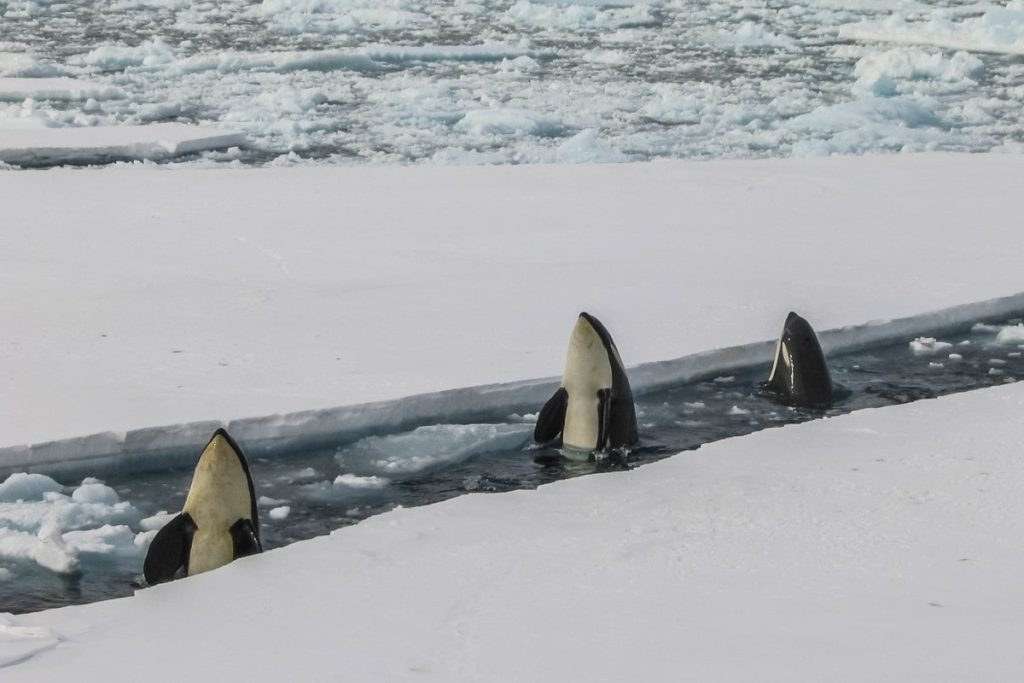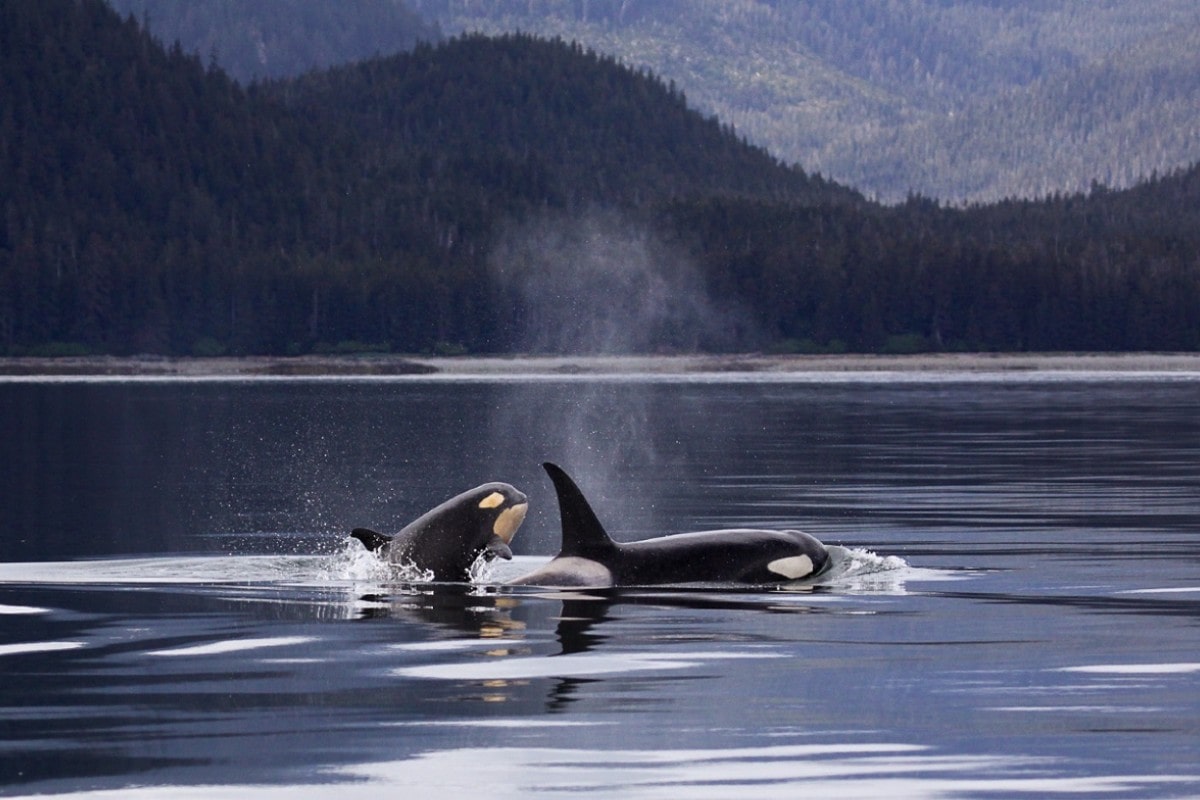Orcas, often referred to as killer whales or grampus, are majestic ocean dwellers with a deep intellect and strong social instincts. Captive orcas can live decades if they receive excellent care, but how long do orcas live in the wild? That depends on several factors. Let’s find out more.
Sex Does Matter in Orca Lifespan
When it comes to orca, girls really do run the show. Orca are matriarchal, meaning the oldest females lead the pod, which can number as many as 40 individuals. Older females have the most life experience and since they are no longer of breeding age, they lead the family group to the best hunting regions and migration routes.
Unlike many other social species, male orcas do not leave their family pod. Instead, they will break away to breed with females from other pods and then return to their own family group.
Females also rule males when it comes to longevity. On average, female orcas live 10 years longer than males. When it comes to estimate lifespans, there are many factors at play, including the individual species of orca, the region they live in and how abundant their food resources are.
For instance, Southern resident orcas are currently living approximately 15 years less than they were 25 years ago. This is due to the decline in the population of salmon. Females of Southern-based orcas are expected to live 50-60 years, while males do not usually live longer than 40 years in the wild.
Larger species or those that live in waters with plentiful prey can live up to 30 years longer. Surprisingly, orcas living around Arctic waters live longer than most other species as there is an abundance of prey, such as seals, walruses, other whales, squid and fish.
Orcas in captivity
In comparison to orcas living in captivity, the number is highly contested. Sea World claims the average lifespan of captive-born orcas is around 50 years. However, the oldest ever captive-born orca is only 30 years of age. Logically, the average lifespan has to be lower than 30. Therefore, scientists estimate that orcas born in captivity live for between 15 to 25 years.
Also Read: What do Whales Eat?
Other Threats for Orcas in the Wild
The other key factor in determining lifespan is how dangerous an orca’s home range is. The biggest issue facing orcas worldwide is pollution. Chemicals and toxins from human waste and trash seep into the ocean, causing marine life to become sick.
Orcas accumulate these toxins into their bodies when they consume prey animals like fish and seals who are also carrying the chemicals within their bloodstream.

These chemicals will weaken the immune system over time, resulting in poor physical health and infertility. It is therefore safe to say that wild orcas inhabiting cleaner waters can live longer than those inhabiting more polluted ones.
Other threats include environmental incidents such as oil spills. Such events have long term implications not just for orca, but for their prey as well. The consequences of these incidents can last for years and affect more than one generation of orca and many different family pods.
Noise pollution is also a big concern for orca pods. They use echolocation to navigate, just like dolphins do. Anything that disrupts normal sound waves will make navigation and hunting much harder for these animals.
Ferry and cargo routes create a huge spike in marine sound waves and disturbances in water movement, making hunting almost impossible for orca pods. This pushes them further away to areas where there may be far fewer hunting locations available.
The more threats orcas face during their lifetime, the shorter they are expected to live for in the wild. The worst affected pods are those living in warmer climates popular with tourists where there is an increase in water sports, ship travel and commercial fishing.
You Might Also be Interested in Reading: How Do Whales Sleep?

